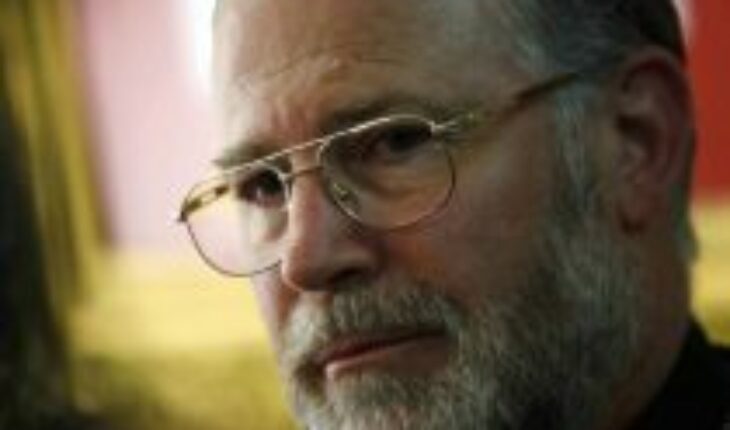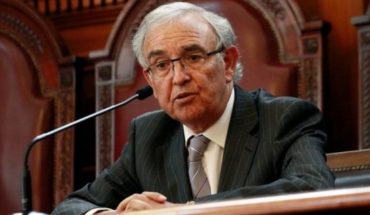It has been the tone that the bishops that the Catholic Church has had in the Region of Magallanes and Chilean Antarctica belong to the Salesian Congregation, but this could change with whoever succeeds the resigned current Bishop Bernardo Bastres Florence, a departure made official by the Vatican on December 22.
Temporarily, Monsignor Bernardo Bastres was left with the formula “nunc pro tunc” (now for then) that establishes that this resignation will be effective with the appointment of his successor.
“For some time, I have been reflecting, evaluating and praying before God, my performance as Pastor of this beloved Diocese, and with the confidence of a son, I presented to the Holy Father the resignation from the pastoral government of the Diocese, for strictly personal reasons. For this, my gratitude to the Pope, for his understanding and welcome,” Bishop Bastres said in a written statement, after learning of his resignation from office.
In addition, he argued that “among the reasons that I can share with you, are all the events that we have had to live in these years and how they have not only hit our Church, but have also affected me personally. I have been overwhelmed and limited to respond as they deserve to be confronted and assumed.”
Bastres, who was superior of the Salesian Congregation, was appointed bishop of the diocese in Magallanes by then Pope Benedict XVI, and took office on March 4, 2006, replacing the bishop emeritus of the Church in Magallanes, Monsignor Tomás González Morales, also a Salesian.
The new bishop assumed the direction of the Catholic Church in the southern zone inheriting complaints of sexual abuse and the disappearance of the Salesian student, Ricardo Harex, which occurred on October 19, 2001, after having gone to a barbecue of a friend.
For this last reason even Bastres had to testify before the justice on several occasions and also before the special commission that was formed in the Chamber of Deputies some years ago.
The questions lie in an eventual protection of Bishop Bastres to the late Salesian priest Rimsky Rojas, then director of the Liceo San José, where Harex studied his fourth half at the time of his disappearance. It is presumed that Rimsky Rojas would have had knowledge or eventual participation in the disappearance of the student, although this was never established in the judicial investigation. Rojas took his own life in 2011 when an investigation had already been launched against him for an allegation of sexual abuse when he was an educator at a Salesian school in Valdivia.
Succession
Pope Francis, head of the Catholic Church, through the embassy (nunciature) of the Vatican in Chile, has already begun to look for who could be the successor of Monsignor Bernardo Bastres, and for this some committed lay people have been consulted about the profile that the new leader of the Magellanic Catholic Church should have.
In the first analyses it has been seen that the successor could be a diocesan priest or of another religious order, but never a Salesian. Nor is it ruled out that the event may be a bishop who already holds office in another diocese. If this happens, it would not be the first case. Many years ago it happened when the then auxiliary bishop of Concepción Alejandro Goic, was transferred to Osorno and later assumed as bishop in Rancagua. The same happened with Fernando Ramos, who was transferred from the Archbishopric of Santiago to Puerto Montt.
Among the Catholics of Magallanes, the management of Monsignor Tomás González was marked, who during the military dictatorship played a leading role in the defense of human rights and maintained a permanent presence in the communities, in the populations.
Bernardo Bastres had other times, such as facing questions about his management at the head of the Salesian Congregation and allegations of sexual abuse, but he is also criticized for not having been close to the grassroots communities, in the neighborhoods.
However, he played an important role in arranging his duties as a mediator in the protest against the rise in natural gas that paralyzed the region in January 2011. There he arranged facilities for meetings between the leaders who led the mobilization and the authorities of the time.
Another work that Bastres has led is the “assistance” to the most dispossessed families and people, enabling winter shelters.
The Church of Magellan was forged from the beginning with the presence of the missionaries of the Sal CongregationEsiana, establishing dominance over other religious orders in the work of education for children and support in training for the population at the beginning of the twentieth century to the present.
This also influenced the succession of bishops who have directed the destinies of the diocese of Magellan, which was created in 1947, and leaving behind the Apostolic Vicariate of Magellan. The first titular bishop of the time was Monsignor Cándido Rada, a Magellanic who was then bishop of Ancud, but he never took office and was relieved in 1949 by the newly consecrated Salesian Bishop Vladimiro Boric Crnosija, great-uncle of President-elect Gabriel Boric, who served until his death in 1973. The following year Monsignor Tomás González took office, who stayed until 2006.
Replacement of Bishop Bernardo Bastres: the next boss of the Catholic Church of Magellan could break the rule and be diocesan
January 22, 2022 |





